Are You Looking For a Solution To Your Urinary & Bowel Incontinence Issues In Greer, South Carolina?
Conveniently located off Interstate 85 in South Carolina
980 Batesville Rd Suite C Greer, SC 29651
Free parking available

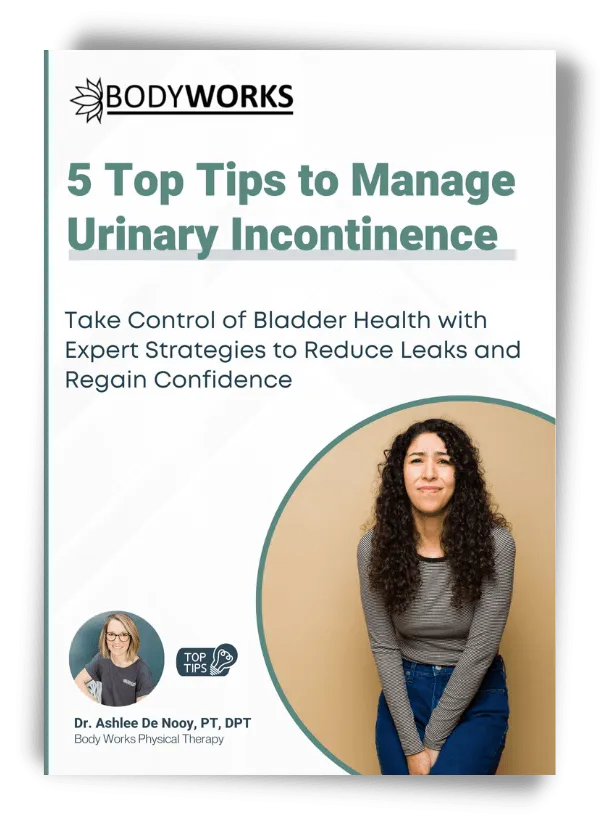
Download Your FREE Urinary Incontinence Information Pack:
“5 Top Tips To Manage Urinary Incontinence”
Click the button below to get your FREE Report
Does Any of This Sound Familiar?
Do you find yourself frequently rushing to the bathroom or worrying about leaks at inconvenient times?
Are you avoiding certain activities or social outings due to fear of urinary accidents?
Do you rely on pads or other products to manage unexpected leaks, feeling embarrassed or frustrated?
Have you noticed an increase in bathroom visits, even when your bladder doesn’t feel full?
Are you tired of living with the stress and anxiety that urinary incontinence brings to your daily life?
Have you been told that surgery or medication is your only option, but you're looking for natural, effective alternatives?
If you answered YES to any of the above, you're not alone. At Body Works Women's Health & Wellness we hear stories like this every single day. May be time to explore how pelvic floor therapy can help you regain control and confidence.
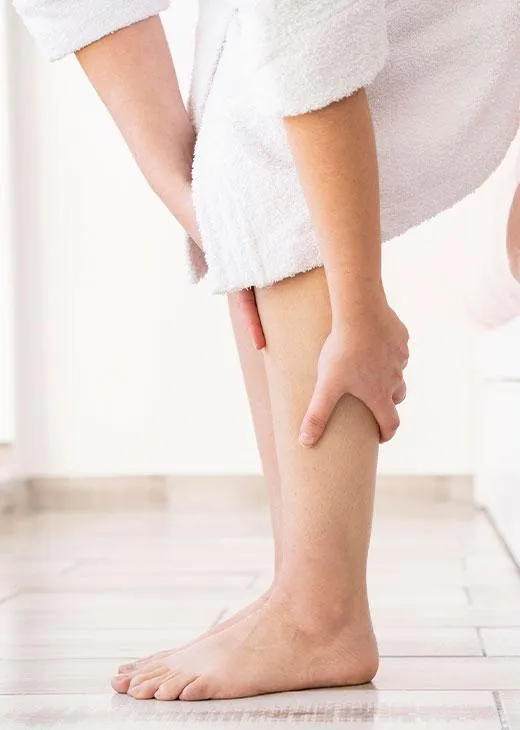
Body Works Women's Health & Wellness
Greer, South Carolina
Still Feeling A Little Confused About Your Condition And Don't Know What To Do?
#1 Option (👍 most popular)

#2 Option - Send Us a Message

#3 Option - Book Appointment

What Causes Urinary Incontinence... And Why is it Not Going Away?
Urinary incontinence occurs when the muscles and tissues that support the bladder weaken, leading to involuntary urine leakage. This can result from factors like pregnancy, childbirth, aging, or increased pressure on the bladder during physical activity.
Symptoms include frequent urges to urinate, leakage when coughing or exercising, and difficulty controlling bladder function. Without proper treatment, the underlying muscle weakness or dysfunction can persist, making the issue more difficult to resolve over time.

Frustrated With Your Bladder Control?

Not sure who to ask?
Not sure what to do next?
Not sure who can help?
Please fill out the form below and chat with one of our team members about your right next step
The Body Works Women's Health & Wellness Urinary Incontinence Program - The Leak Free Solution
Step 1 - Comprehensive Evaluation and Diagnosis
In the first step, we perform a thorough evaluation of your symptoms, medical history, and pelvic health.
This includes a detailed examination of your pelvic floor muscles to identify the root cause of your incontinence.
We aim to get a clear understanding of your condition, so we can create a personalized treatment plan just for you.
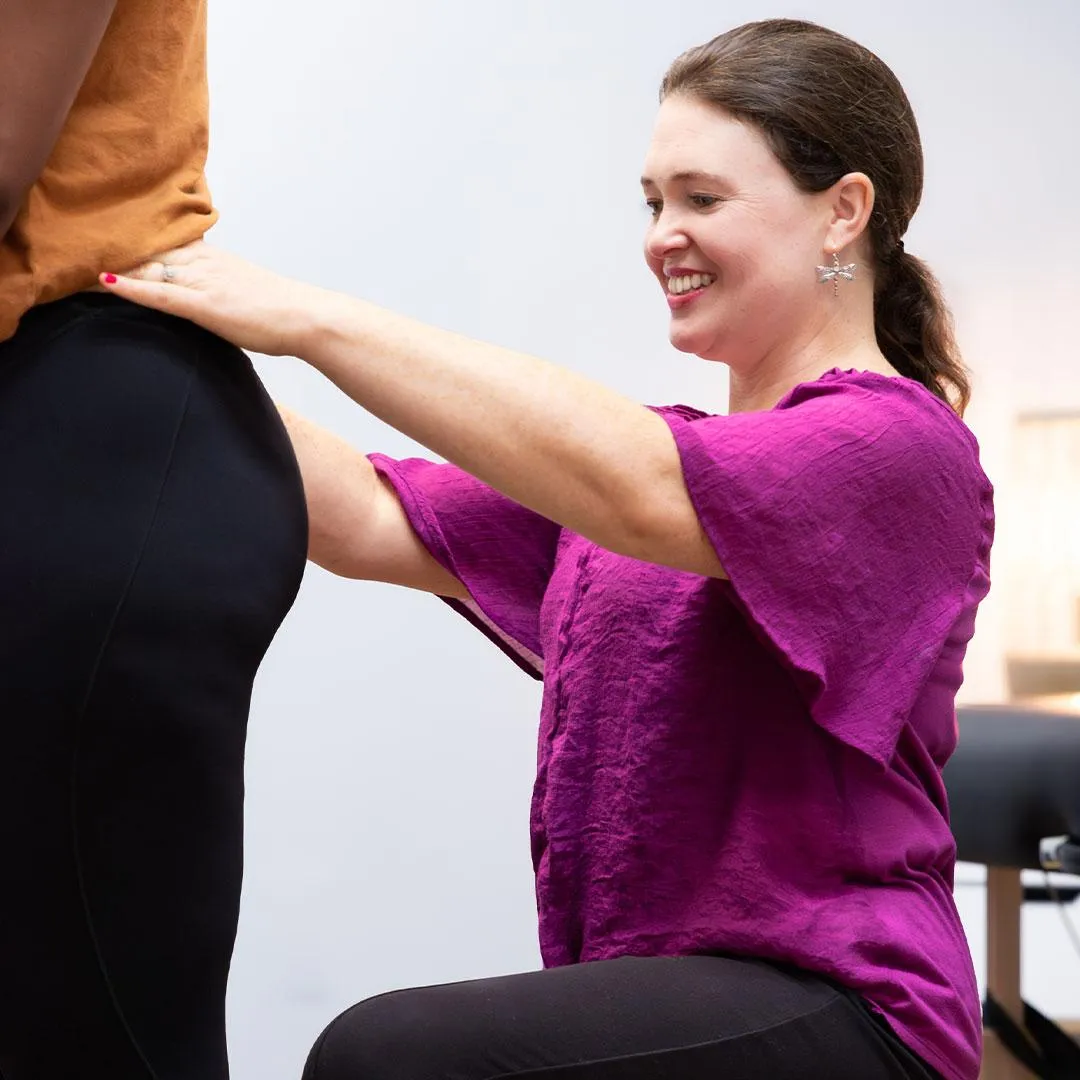
Step 2 - Customized Treatment Plan
Based on the evaluation, we develop a tailored treatment plan designed to strengthen your pelvic floor and address the specific causes of your leaks.
This may include a combination of pelvic floor exercises, bladder retraining techniques, lifestyle adjustments, and other non-invasive therapies to help restore control.
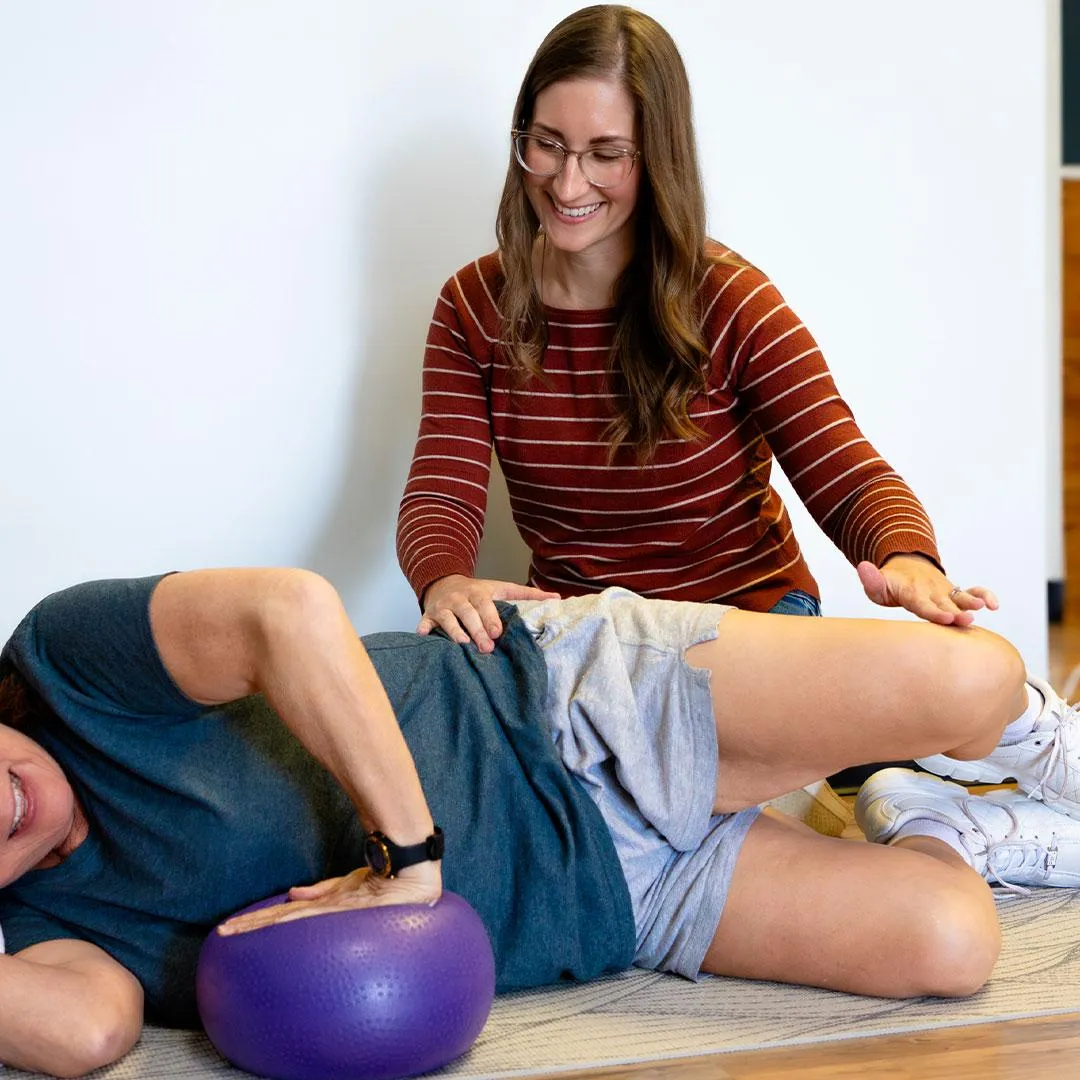
Step 3 - Long-Term Results and Prevention
Our final step is all about recovery and prevention. We’ll guide you through gradual progressions to ensure long-term success, so you can remain leak-free and regain confidence.
We also provide you with the tools and knowledge to prevent future issues, helping you live a life free from incontinence.
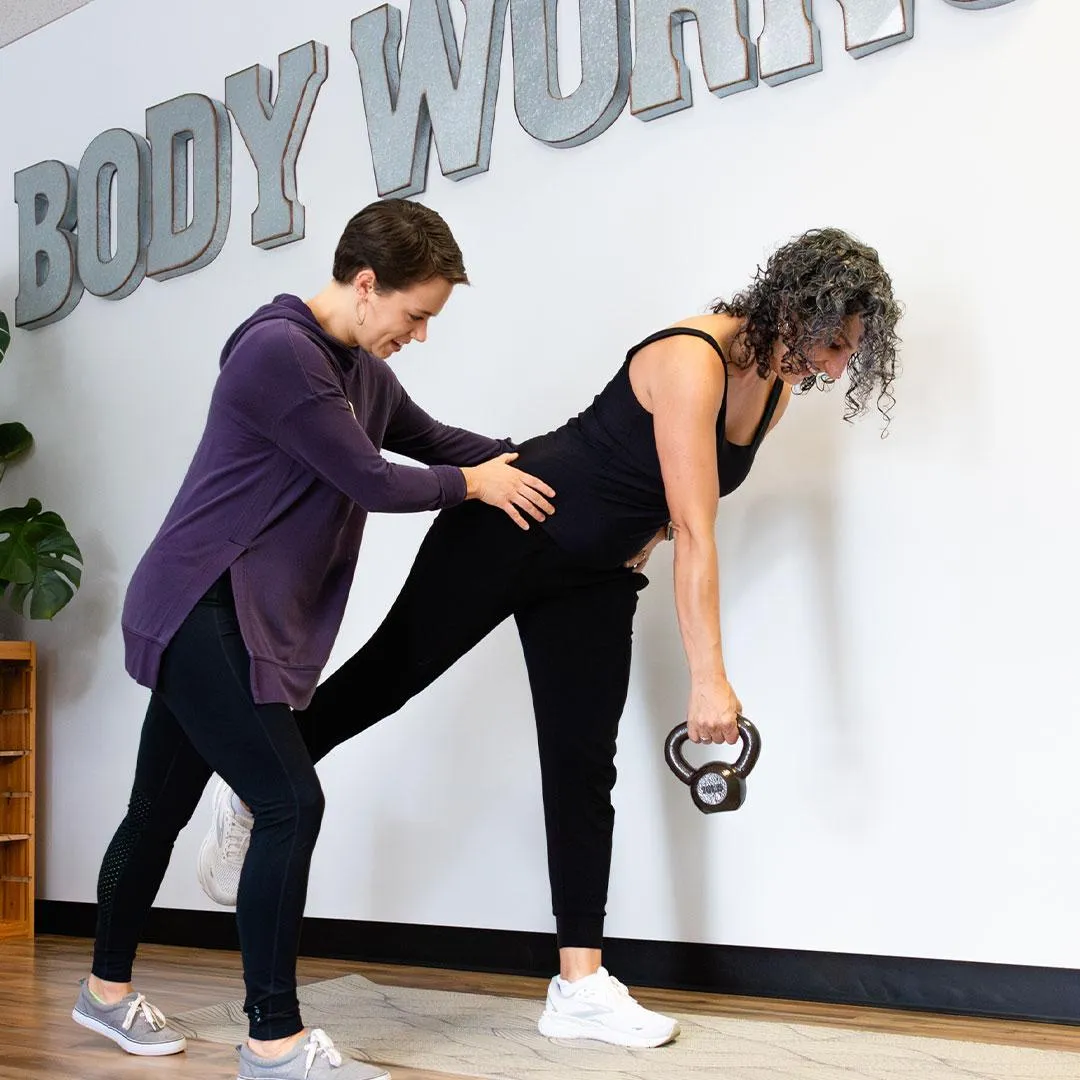
Is The Urinary Incontinence "The Leak Free Solution" Program Right For You?
Our expert team of physical therapists at Body Works Women's Health & Wellness specializes in treating urinary incontinence, helping countless women regain control and confidence in their daily lives.
Here’s just a few ways our team can help you:
We can tell you on Day ONE what’s causing your incontinence, why it’s happening, and how to fix it.
We’ll get to the root cause of your urinary incontinence quickly—often within the first 20 minutes of your evaluation.
We can help you enjoy more energy and freedom each day, free from the stress of leaks
We can help you avoid the need for medications or invasive treatments like surgery or injections.
We can keep you out of the doctor’s office and stop the cycle of repeat visits and ineffective treatments.
We’ll help you reclaim quality time with family and friends that urinary incontinence may have stolen from you.
We can help you stay active and live a full, leak-free life with confidence.
What's next? You've got a decision to make - another month gone by without solving your urinary incontinence problem, or are you ready to get back to doing the things you love?
Is Urinary Incontinence Slowing You Down? Take Us Up on One of Our Free Options
Option #1 (👍 most popular)

Option #2


From Consultation to Treatment
What to Expect at Your First Visit to Body Works
We're excited to see you at your appointment! We want to make sure you feel comfortable and well-informed, so don't hesitate to ask us any questions about our treatments, our clinic, or even our payment options. Our goal is to help you get back to living your life free of pain, so let's work together to make that happen!
Discuss your story and health goals
Complete assessment
Discover your options
Start a custom treatment plan


Here's Why Over 1,000+ Women Choose Body Works Women's Health & Wellness
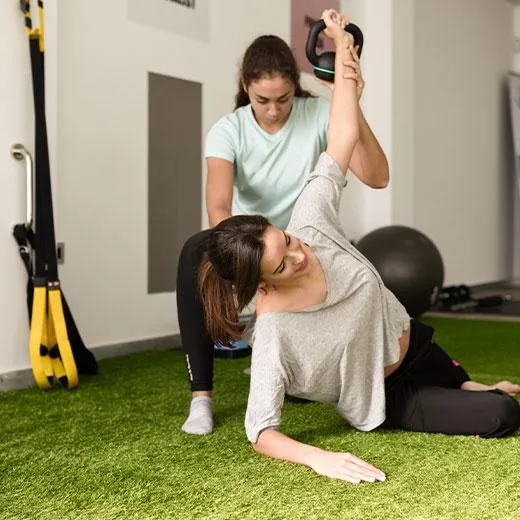
Specialised Expertise: Our clinic offers specialised care from highly-trained physical therapy in various fields like sports rehab and chronic pain management.
Comprehensive Approach: We provide holistic treatment plans combining manual therapy, exercises, and cutting-edge technology for a well-rounded approach.
Cutting-Edge Facilities: Equipped with state-of-the-art facilities and advanced equipment to support patients' recovery.
Proven Track Record: Our clinic's reputation is built on successful patient outcomes and positive feedback, fostering a supportive environment for rehabilitation.
Frequently Asked Questions About Urinary Incontinence
What is urinary incontinence?
Urinary incontinence is the involuntary leakage of urine. It occurs when the muscles and tissues that support the bladder weaken or malfunction, making it difficult to control the flow of urine.
What causes urinary incontinence?
Common causes include pregnancy, childbirth, aging, menopause, pelvic floor muscle weakness, and conditions like obesity, urinary tract infections, and neurological disorders. Physical stress on the bladder, such as coughing or exercising, can also trigger leaks.
Are there different types of urinary incontinence?
Yes, there are several types:
Stress incontinence: Leakage occurs when pressure is put on the bladder, like during exercise, coughing, or laughing.
Urge incontinence: A sudden, intense urge to urinate, followed by involuntary leakage.
Overflow incontinence: The bladder doesn’t empty completely, leading to frequent dribbling of urine.
Mixed incontinence: A combination of stress and urge incontinence.
Can pelvic floor exercises help with urinary incontinence?
Yes, pelvic floor exercises (also known as Kegel exercises) strengthen the muscles that support the bladder and urethra, which can significantly reduce or eliminate incontinence symptoms.
Is urinary incontinence common?
Yes, urinary incontinence is very common, especially among women. It affects about 1 in 3 women at some point in their lives, often during or after pregnancy, childbirth, or menopause.
Can urinary incontinence be treated without surgery?
Yes, most cases of urinary incontinence can be treated without surgery. Treatment options include pelvic floor physical therapy, bladder training, lifestyle changes, and sometimes medications. In more severe cases, surgery may be recommended.
How does physical therapy help with urinary incontinence?
Physical therapy focuses on strengthening the pelvic floor muscles, improving bladder control, and addressing the underlying causes of incontinence. Techniques may include specific exercises, biofeedback, and bladder retraining.
When should I see a doctor or physical therapist for urinary incontinence?
If urinary incontinence is affecting your daily life, limiting your activities, or causing distress, it’s a good idea to consult with a healthcare provider. Early intervention can lead to more effective treatments and better outcomes.
Are there lifestyle changes that can help manage urinary incontinence?
Yes, lifestyle changes can help, including:
- Maintaining a healthy weight to reduce pressure on the bladder.
- Avoiding bladder irritants like caffeine, alcohol, and spicy foods.
- Practicing timed voiding, which involves scheduling bathroom visits.
- Staying hydrated while managing fluid intake appropriately.
Please note that these FAQs provide general information and should not replace personalised advice from a qualified healthcare professional. It is important to consult with a trusted physical therapist to assess your individual case and determine the most suitable treatment plan for your urinary incontinence.
Frustrated With Your Urinary Incontinence?

Not sure who to ask?
Not sure what to do next?
Not sure who can help?
Please fill out the form below and chat with one of our team members about your right next step

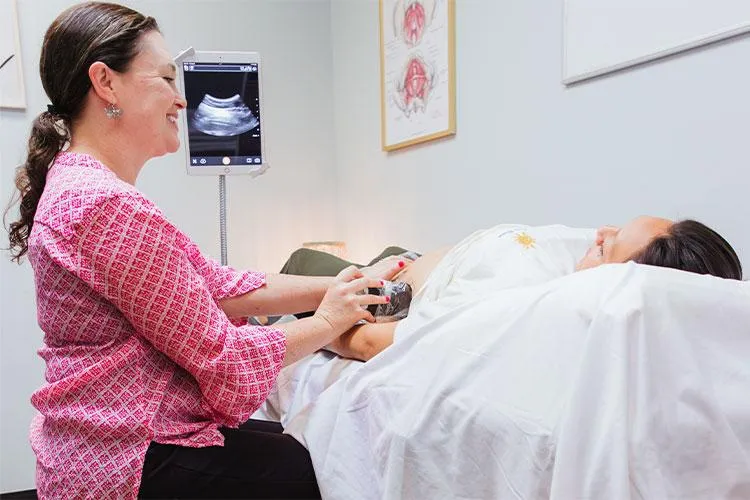
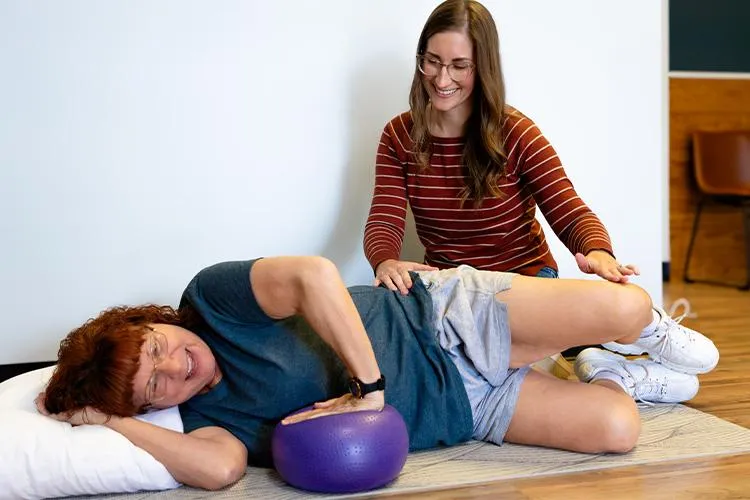
Where To Find Body Works Women's Health & Wellness

If you have any questions before scheduling an appointment or for general inquiries, please use the contact us button below. Our team will promptly reach out to assist you.
Opening Hours
Monday: 7:30am -6pm
Tuesday: 7:30am-4pm
Wednesday: 8am -5:30pm
Thursday: 7:30am - 3pm
Friday: 7:30am - 3pm
Saturday: Closed
Sunday: Closed

